In the compelling biography of Sunita Narain, readers embark on an inspirational journey through the life and achievements of a distinguished environmentalist. Born in 1961, Narain’s unwavering dedication to environmental causes has propelled her to international acclaim.
This article delves into her early influences, her pivotal role as Director-General of the Centre for Science and Environment (CSE), and her groundbreaking contributions to environmental policy and advocacy.
Narain’s remarkable life story not only illuminates her passion for sustainability but also showcases her influence on shaping India’s environmental landscape. Through her tireless efforts, Sunita Narain emerges as a beacon of hope for a planet in need of dedicated stewards.
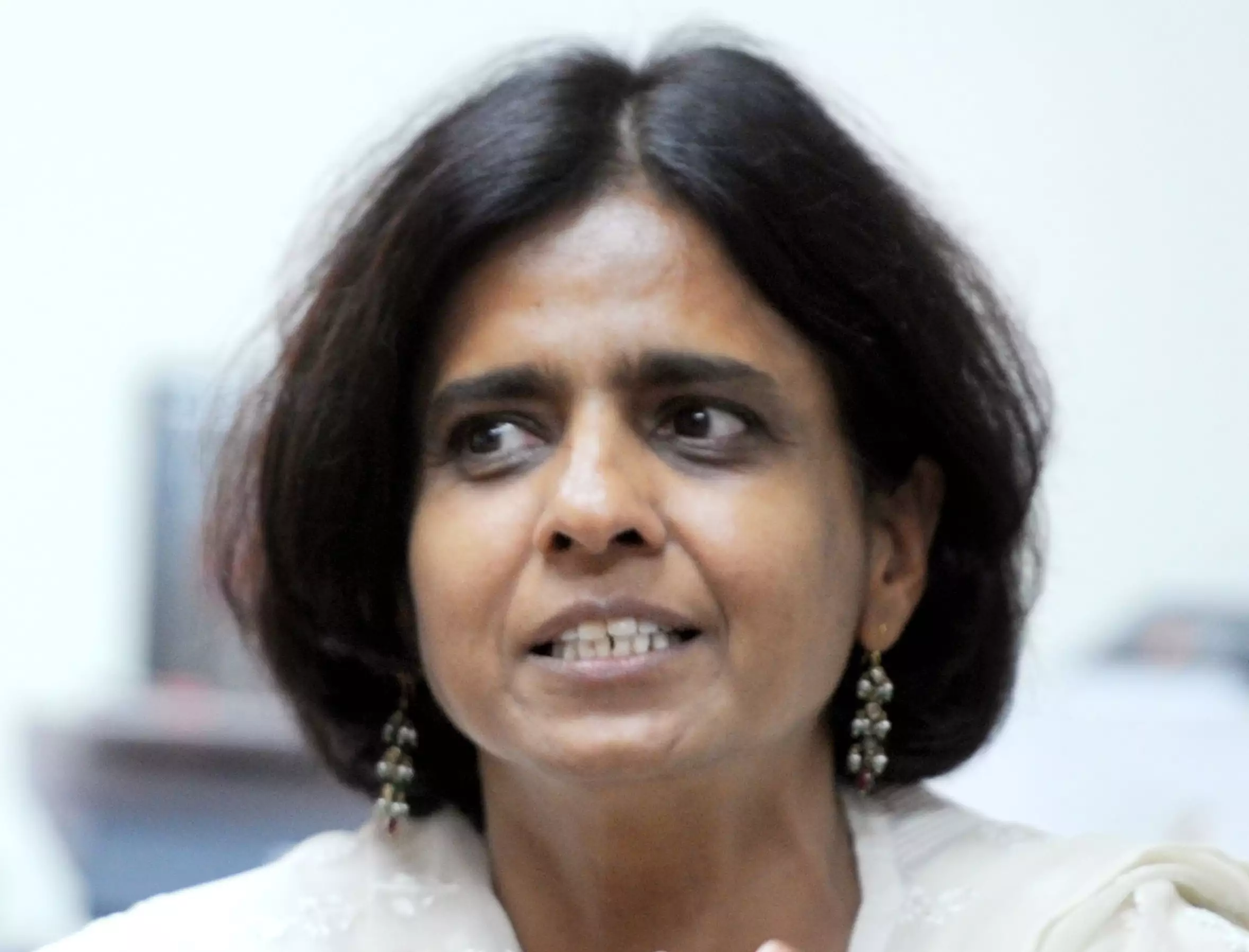
Who is Sunita Narain ?
Sunita Narain is an Indian famous environmentalist. She is particularly active in climate change. At the same Time it is working with caution to prevent air pollution and water pollution. Sunita is working as director of the center for sciences, a research institute based in India, and director of environmental communication. She is named in the top 100 most popular list of Sunita Narain Time Magazine.
Sunita Narain Husband, Family & More
Her father’s name was Raj Narain, and he was a freedom fighter. After India got its independence in 1947, he started an export business for arts. Usha Narain is the name of her mother.
When she was eight years old, her father died, and her mother took over the family business and cared for the family. One of Sunita Narain’s younger sisters, Urvashi Narain, works as a Lead Economist at the World Bank in Washington, DC.
Sunita Narain Personal life
On the morning of October 20, 2013, Narain was hurt in a traffic accident while riding his bike near the All India Institute of Medical Sciences. A car hit her bike as she was hanging from her home in Green Park to Lodhi Gardens.
The car driver didn’t stop, so a bystander took Narain to AIIMS. She got cuts on her face and hurt her back and legs. She was released from the hospital 11 days after she had surgery to fix her nose and two metal plates put in to support her broken wrists.
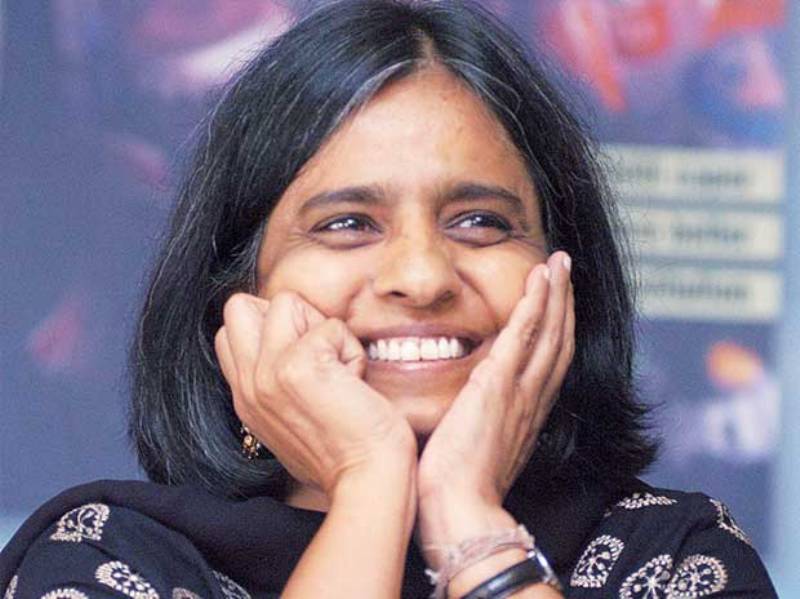
| Date of Birth | 23 August 1961 (Wednesday) |
| Age (as of 2021) | 59 Years |
| Birthplace | New Delhi, India |
| Zodiac sign | Virgo |
| Nationality | Indian |
| Hometown | Delhi |
| College/University | • University of Delhi, India • Cranfield University, UK • University of Calcutta, India • University of Alberta, Canada • University of Lausanne, Switzerland |
| Educational Qualification(s) | • Graduated from University of Delhi (1983), India. • Doctor of Science (Honorary), Cranfield University, UK. • D.Sc. Degree (Honorary) University of Calcutta, India. • Doctor in Geosciences and Environment (Honorary), University of Lausanne, Switzerland. • Doctor of Laws (Honorary), University of Alberta, Canada. |
Sunita Narain Physical Stats & More
| Eye Color | Black |
| Hair Color | Black |
| Skin Color | Fair |
| Height | in centimeters: 158 cm in meters: 1.58 m in feet inches: 5’ 2” |
| Weight(approx) | in kilograms: 65 kg in pounds: 143 lbs |
| Figure measurements | 32-30-33 inches |
| Tattoo | Update Soon |
Sunita Narain Career
Sunita is the Director-General of the Centre for Science and Environment (CSE), New Delhi, and in 1982, she started working at CSE after completing her studies at the University of Delhi.
The issues related to forest management in India were considered by Sunita during her tenancy at CSE, and in 1985, she co-edited the State of India’s Environment report on Indian forest management.
To prepare this report on forest management, she travelled all over India to keenly observe and understand the management of people in using natural resources.
In 1989, Sunita penned the report ‘Towards Green Villages’ along with the founder of CSE, Anil Agarwal. This report highlighted the topics on sustainable development and local democracy in India.
As the director of CSE, Sunita carefully examined the association between environmental issues and sustainable development in India. Around the same time, she focussed on creating public awareness for the requirement and importance of sustainable development in India.
In the 1990s, Sunita has worked as a researcher on global environmental issues as the Director of CSE. This research includes issues related to climatic change, water-related issues, and forest-related resource management agendas in India.
In 2005, in an interview, Sunita said that her company CSE was told to suggest solutions to the problems in tiger conservation policy in India (a national task force), which was set up at Prime Minister Manmohan Singh’s office.
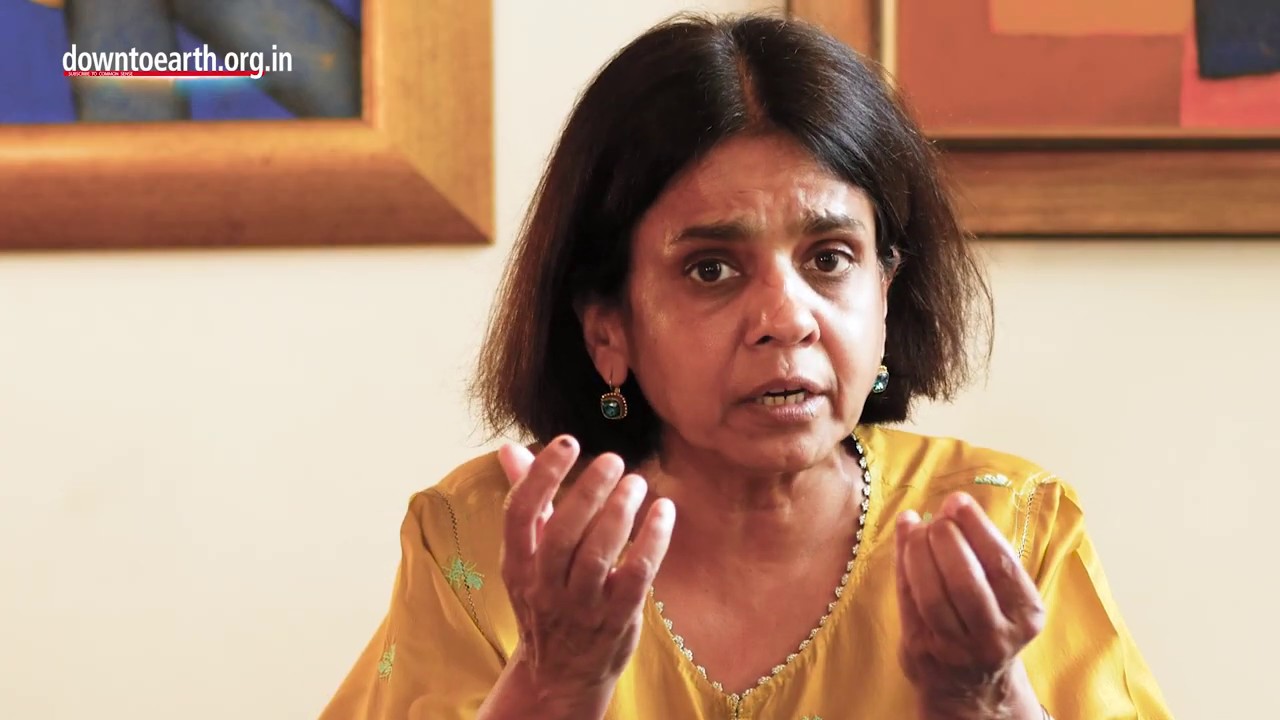
She stated that she was heading the task force along with the forest wildlife experts in India. She said,
“We recommended a complete change in [tiger] conservation management, which was accepted by the Prime Minister. In India, where we have a large population living in the vicinity where animals live, there is a need to practice another form of conservation, which is called co-existence. We have already tried exclusive conservation for the last 30 years and it has not worked. Now we need to try more inclusive conservation methods.”
In 2006, under the supervision and leadership of Sunita Narain, the Centre for Science and Environment, India, presented a disclosure of high level of pesticide cocktails present in American brands, Coke and Pepsi, to the government of India.
In an interview, Sunita said that these soft drinks were unsafe and unhealthy to drink, and public health remained severely compromised. She said,
“Soft drinks remain unsafe and unhealthy. And public health remains severely compromised. Worse, even the directions given by the Joint Parliamentary Committee (JPC) have been disregarded: standards for safety have been finalized but blocked because of company opposition. This is a grave public health scandal. We initially started with mineral water.”
She further revealed the coca-cola controversy and said that she took the sample of the raw water that was used by these companies, and the Centre for Science and Environment found a huge amount of pesticides in it. She said,
“When we took a sample of the raw water that is used by these companies, we found huge amounts of pesticides in it. When we then took a sample of the so-called treated water, we found pretty much the same pesticide content. Around that time, someone told us to look into soft drinks too. That’s how this controversy began.”
Also Read:
In 2008, on a ceremonial occasion, Sunita delivered a formal speech titled “Why Environmentalism Needs Equity: Learning from the environmentalism of the poor to build our common future” of K R Narayanan (former President of India) at the ANU in Canberra, Australia. Climate change, fuel cost, biofuels, and food security were the focused areas of the speech.
Sunita often raised issues of her concern and expertise at various forums across the world through her public speeches. As director-general of CSE, over the years, Sunita Narain has also developed a management and financial support system with over 100 staff members at CSE.
In a conference held after the Paris Agreement (COP21) in 2015, Sunita Narain, after the conference, stated in an interview, that the budget in the agreement had various wins and losses to the developed and underdeveloped countries from the Paris Climate Change Agreement.
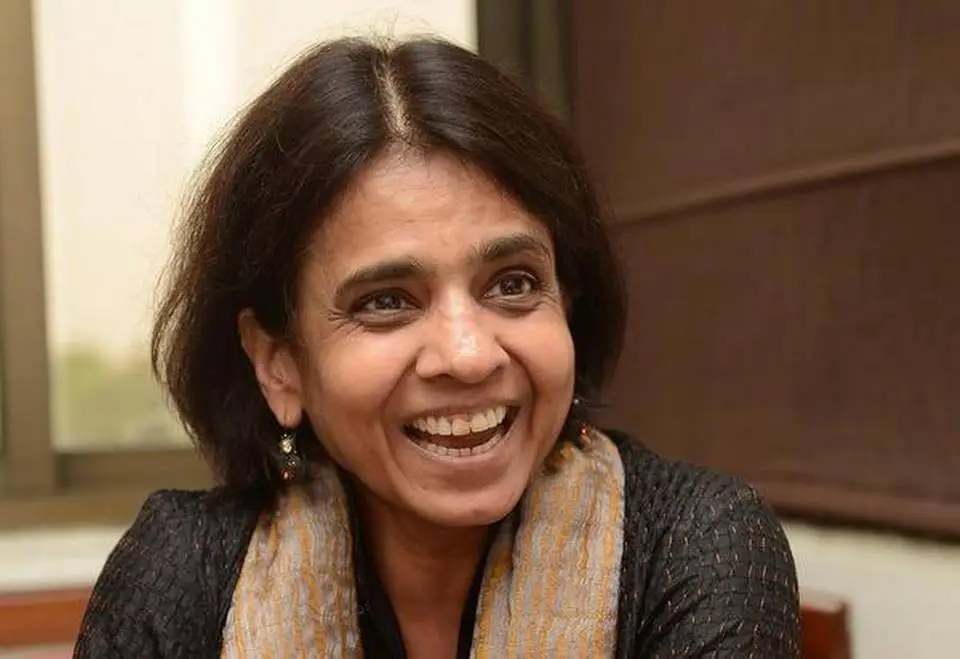
Sunita Narain Filmography
- One Point Seven (TV Series documentary) Self 2019
- Climate Change: The Facts (Documentary) Self – Centre for Science and Environment Director General 2017
- RiverBlue (Documentary) Self 2016
- Before the Flood (Documentary) Self 2012
- Democracy Now! (TV Series) Self- Episode dated 7 December 2012 (2012) Self
2008 - Frontline (TV Series documentary) Self – Center for Science and Environment, New Delhi- Heat (2008)
- Weather Report (Documentary) Self-Centre for Science & Environment 2008
- Flow: For Love of Water (Documentary) Self 2007
- CNN Future Summit: Saving Planet Earth (TV Special) Self
- Sunita Narain Awards, Honours, Achievements
- 2002- Dr B.C. Deb Memorial Award for the popularisation of science by the Indian Science Congress Association, Calcutta.
- 2003- Dadabhai Naoroji Millennium Award by Dadabhai Naoroji International Society, New Delhi.
- 2003- Rotary Eco Foundation Award – outstanding work done in the field of rainwater harvesting in Delhi and surrounding areas.
- 2004- She received the Chameli Devi Jain Award for Outstanding Women Media person.
- 2005- She was awarded the Padma Shri by the Government of India. Sunita Narain while receiving Padma Shri Award from APJ Abdul Kalam
- 2005- The Centre for Science and Environment under her leadership was awarded the Stockholm Water Prize. Sunita Narain while receiving Stockholm Water Prize (2005)
- 2006- Bharat Shiromani award by Shiromani Institute. Sunita Narain while receiving Bharat Shiromani award for the year 2006 by Shiromani Institute
- 2008- Prince Albert II of Monaco Foundation water award.
- 2008- Dr. Jean Mayer Global Citizenship award, Tufts University, Massachusetts.
- 2008- Prince Albert II of Monaco Foundation water award.
- 2009- She was awarded an honorary Doctor of Science by the University of Calcutta.
- 2009- She was conferred with the Raja-Lakshmi Award from Sri Raja-Lakshmi Foundation, Chennai.
- 2011- The Citizen of the Decade Award 2011′ from the Rotary International District 3201, Kerala.
- 2011- The M R Pai Memorial Award instituted by All-India Bank Depositors’ Association (Mumbai). • 2012- Kirloskar Vasundhara Sanman by Kirloskar Vasundhara International Film Festival, Pune.
- 2012- Doctor of Laws (Honorary), University of Alberta, Canada.
- 2014- Energy and Environment Foundation Global Excellence Award in Renewable Energy by Energy and Envronment Foundation Delhi.
- 2015- Centre for Science and Environment got the Public Institution of the year award by Business Standard
- 2016- Narain was named to Time Magazine’s list of 100 Most Influential People.
- 2016- Narain received the IAMCR Climate Change Communication Research in Action Award.
- 2017- Sri Chukkapalli Pitchaiah Foundation Award for 2017 instituted by the Sri Chukkapalli Pitchaiah Foundation, Vijayawada, Andra Pradesh. Sunita while receiving Sri Chukkapalli Pitchaiah Foundation Award for 2017
- 2020- She won Edinburgh Medal.
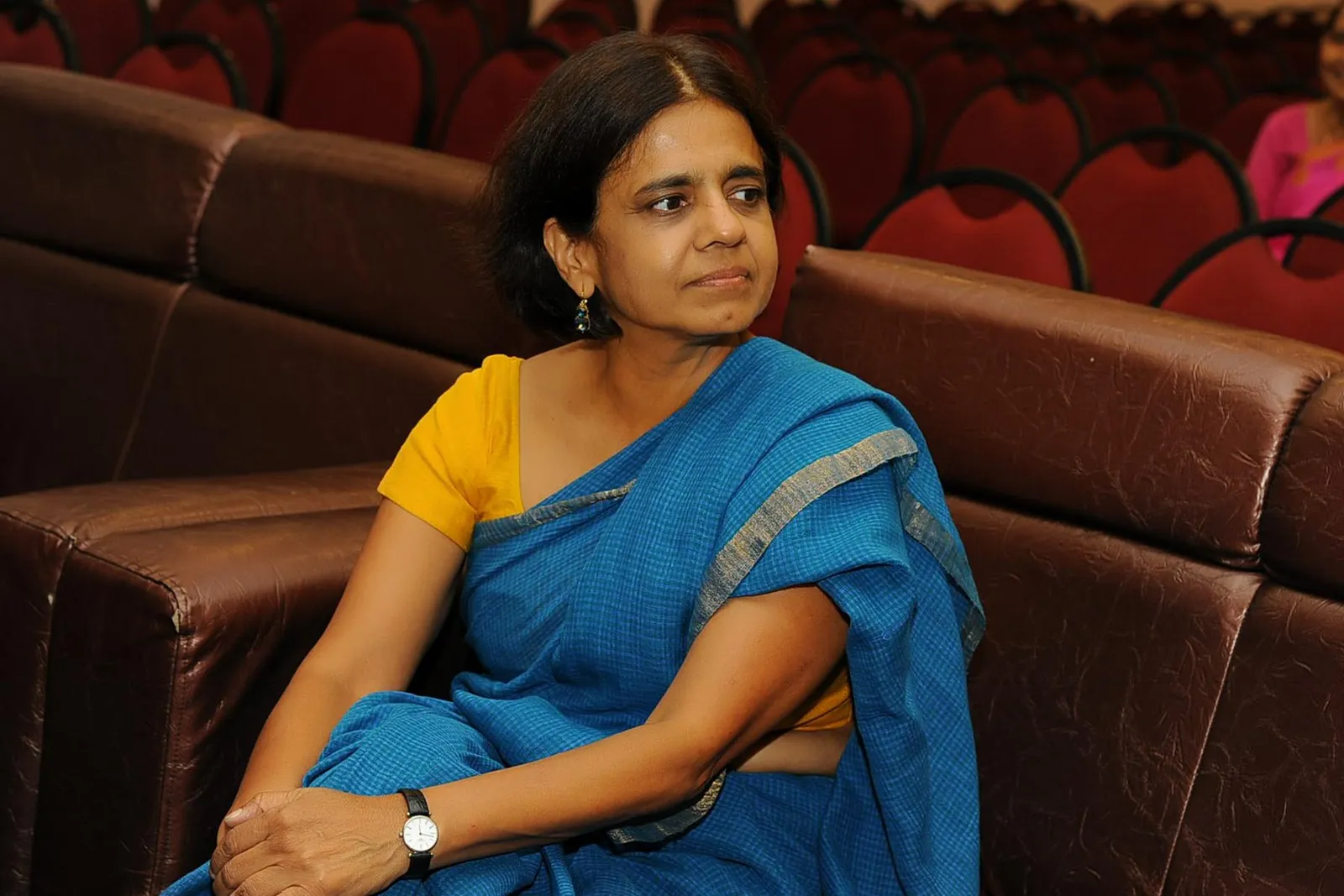 Sunita Narain Controversies
Sunita Narain Controversies
- On March 15, 2015, the Bombay High Court accepted a defamation suit against Sunita Narain and told her to remove a line from her report about the Mumbai-based agrochemical company UPL that the court said was defamatory.
- In 1995, a magazine story said Dawood Ibrahim’s brother owned UPL. Sunita talked about the controversial draft Environmental Impact Assessment (EIA) in 2020, which affected India’s planned airport expansion projects at Mollem and Jolly Grant.
- She told me, “This is the last piece of the puzzle. But the corruption of environmental clearance processes has already put a nail in your coffin.
- Today, faceless committees that don’t take responsibility for their choices look over projects. For example, the plan for the Navi Mumbai airport took years of complicated decision-making. Environmentalists were against it, but the government soon approved it, with some restrictions.
- Is there a way to check if those conditions have been met once the airport is built? No, because no one is watching. The EIA notification has already been killed, not just by the present government. Instead of sticking to the draft, we should ask for a better way to clear the environment.”
- In an interview on March 28, 2017, Sunita talked about why she didn’t promote vegetarianism even though it was thought that vegetarian diets were better for the earth. Sunita Narain, an environmentalist, criticized Yogi Adityanath’s “militant vegetarianism” by calling it “cruel demonetization.”
- She said, “I wouldn’t recommend being a veggie because of the following. One, India is a secular country, and the way people in different communities, regions, and faiths eat food differs. This idea of India is important to me because it shows how rich and real we are.
- Two, meat is a good energy source for many people, which is important for their food security. Thirdly, and this is what makes my Indian position different from the rest of the world, the main problem is not eating meat; it is how much meat is eaten and made. She also said that a lot of Indian farmers depend on raising animals.
- She told me, “As an Indian environmentalist, I wouldn’t support a ban on meat because livestock is the most important way for farms to make money in our world. Indian farmers do agro-silvo-pastoralism, meaning they use the land for food and animals.
- Not the banks, but this is their real way of getting protection. Large meat businesses don’t keep animals either. Instead, big, small, marginal, and landless farms do. It works because the animals are useful.
- First, they give milk and dung. Then, they give meat and leather. If you take that away, you will destroy the economic security of millions of people in the country and make them very poor.”
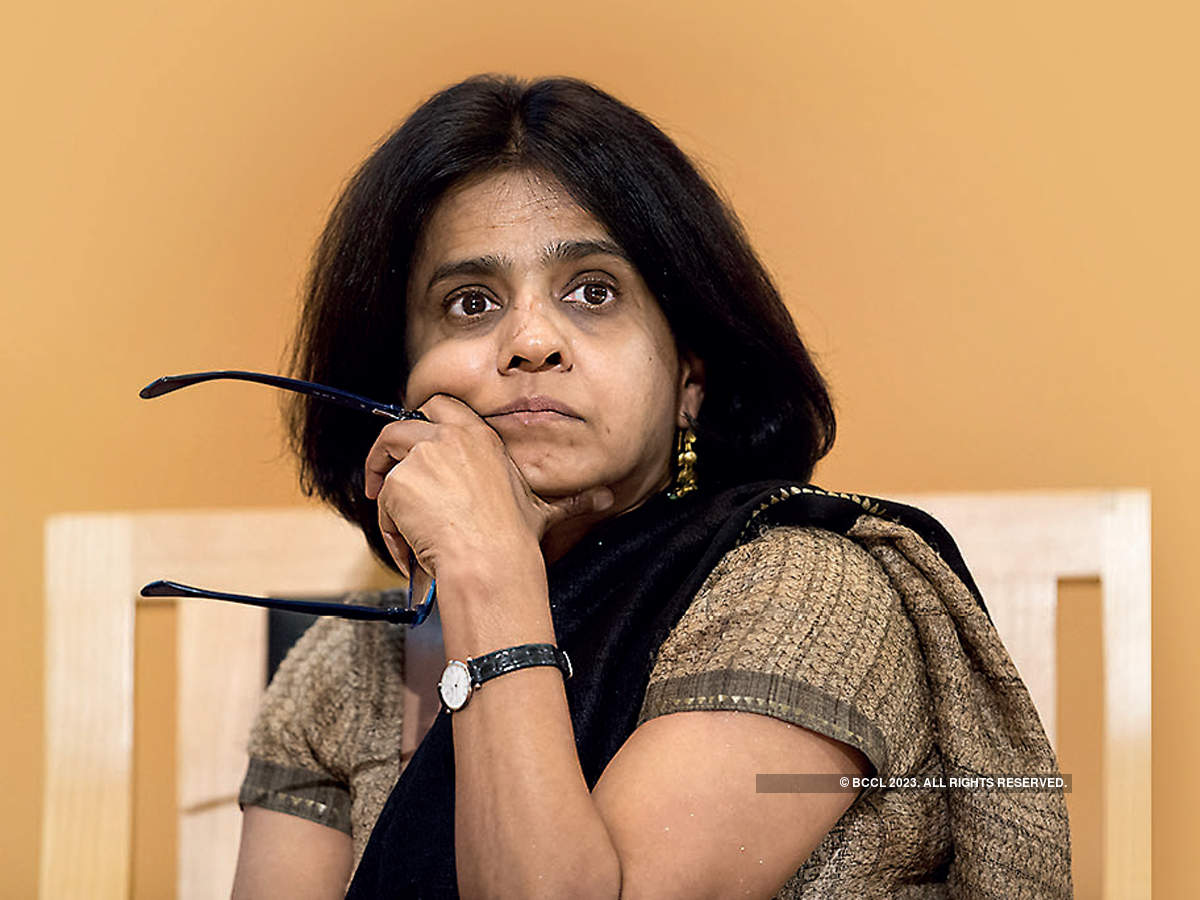
Major Facts of Sunita Narain
- Sunita Narain use to smoke – No
- Narain drinks alcohol – No
- Sunita Narain was named one of the 100 Most Influential People by Time Magazine in 2016. Sunita Narain reportedly attended her first workshop about the environment in the 12th grade in 1979.
- The Gandhi Peace Foundation in Delhi, India, put on this training. In an interview in 2006, Sunita Narain said that she was interested in environmental and climate problems in India when she was a student at Delhi University but that the environment was not a subject she studied.
- She told that “At that time, no college in India had a course on the environment. In the 1980s, I met Kartikeya Sarabhai, son of the famous scientist Vikram Sarabhai and director of the Vikram Sarabhai Institute for Development and Research in Ahmedabad. He gave me a job as a research assistant at the institute, and I never looked back. After that, I worked briefly at the Natural History Society in Mumbai, making videos about environmental problems.
- She also said that the Chipko movement made her think about climate and environmental problems in India as her main work areas. She told me, When the Chipko Movement began in the Himalayas in the late 1970s, with women protesting to save forests, I knew that protecting the earth was my calling.
- People say that Sunita joined the Chipko movement (an Indian movement to protect forests that started in 1973 in Uttarakhand, India) as soon as she finished school and chose to graduate by mail. In the meantime, she began working at the “Vikram Sarabhai Centre for Development Interaction” in Ahmedabad, Gujarat. This centre was set up by Kartikeya Sarabhai, one of the world’s best environmental trainers.
- In 2012, ‘State of India’s Environment Reports’ put Sunita’s report on urban water supply and pollution in India at number seven. “Excreta Matters” was the name of the study. People say that Sunita is involved in civil society activities in India and worldwide.
- Sunita Narain oversees the Centre for Science and Environment, India. She is in charge of several public campaigns and study projects.
- On October 20, 2013, Sunita was in a bad accident near the All India Institute of Medical Sciences in Delhi. A fast car hit her bike as she rode from her home in Green Park to Lodhi Gardens. She hurt her legs and face. Sunita Narain said that the Supreme Court of India told diesel cars over 10 years old to stop.
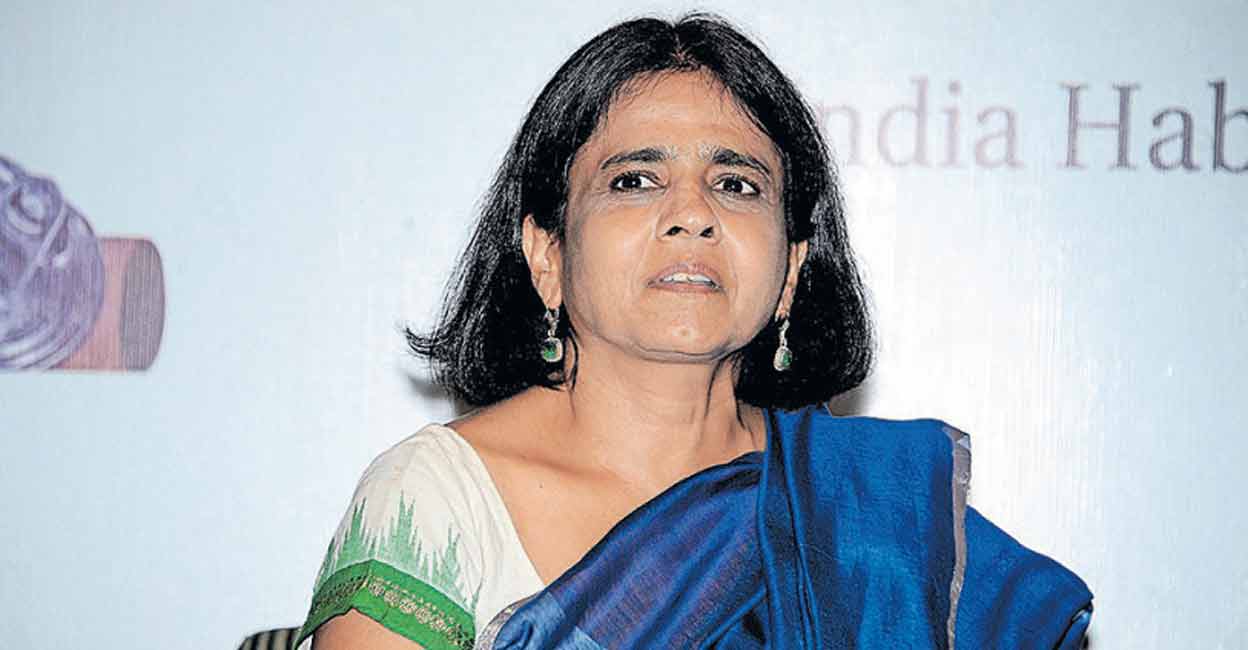
- On December 15, 2015, Sunita made a video in which she talked about the court order to stop registering diesel cars with engines bigger than 2000 cc. Sunita Narain is a well-known author who often talks about how her books have changed society and the surroundings in India.
- In 2016, she discussed her book “Why I Should Be Tolerant” in a video. In the book, she talked about the mistakes people were making when they used natural resources and caused a climate crisis in India. Sunita Narain and Leonardo Dicaprio talked about global warming on December 5, 2016, while she was promoting her self-made documentary with Dicaprio about environmental and climatic problems related to global warming.
- In 2017, Sunita Narain praised the Indian women who save water at home by using their cleaning skills. She also asked the women of India to use less water at home to prevent water shortages in the future. In 2017, Sunita Narain gave a speech at the Jaipur Literature Festival. In it, she talked about deglobalization and climate change.
- She also said that the best way to deal with globalization problems was to consider India’s new paths for sustainable growth. On June 4, 2019, World Environment Day, Sunita Narain answered the interviewer’s questions about air pollution in Delhi, India.
- In the year 2020, Sunita was in charge of the WHO-UNICEF-Lancet Commission. “A future for the world’s children?” was the name of the project she was in charge of. Many Indian magazines and tabloids have put stories about Sunita Narain and her trip to raise awareness about environmental damage and the effects of climate change.
- On May 29, 2020, when locusts attacked India, Sunita Narain gave an exclusive interview to an Indian news station and advised Indian farmers and the government. She talked about how it has to do with climate change in India.
- On March 22, 2020, World Water Day, Sunita Narain talked about how to save water during COVID-19 through a movie. She said that when there was a new coronavirus, people had to be careful about how they used water.
- Sunita Narain discussed “The World After Coronavirus” on May 2, 2020. She talked about the problems and possibilities that would come after the coronavirus.
- Sunita Narain said she liked spending her free time at home with her mother and sisters. She said in an interview that she liked spending the evening with her family and that she might regret not having her own, but she didn’t have time to think about it. She said, ” When I am not passionate about bringing about change, I prefer to be home with my mother and sister in the evenings. Two of my sisters are married, and I might regret not starting my own family someday, but I don’t have time to think about it right now. Sunita Narain often discusses India’s nature and climate at public meetings and other events. In India, she is known as a well-known public speaker.
Sunita Narain Contact Address
- Home Address – New Delhi, India
- Whats app/Phone Number – Not Allow
- Email ID – [email protected]
- Facebook – @Sunita Narain
- Instagram – @Sunita narain
- Twitter – @Sunita Narain
I trust that you’ve received the details regarding Sunita Narain Biography. Kindly share this post, leave a comment, and consider following our website, Biography VIP, for future updates. . Please share this post, and comment.